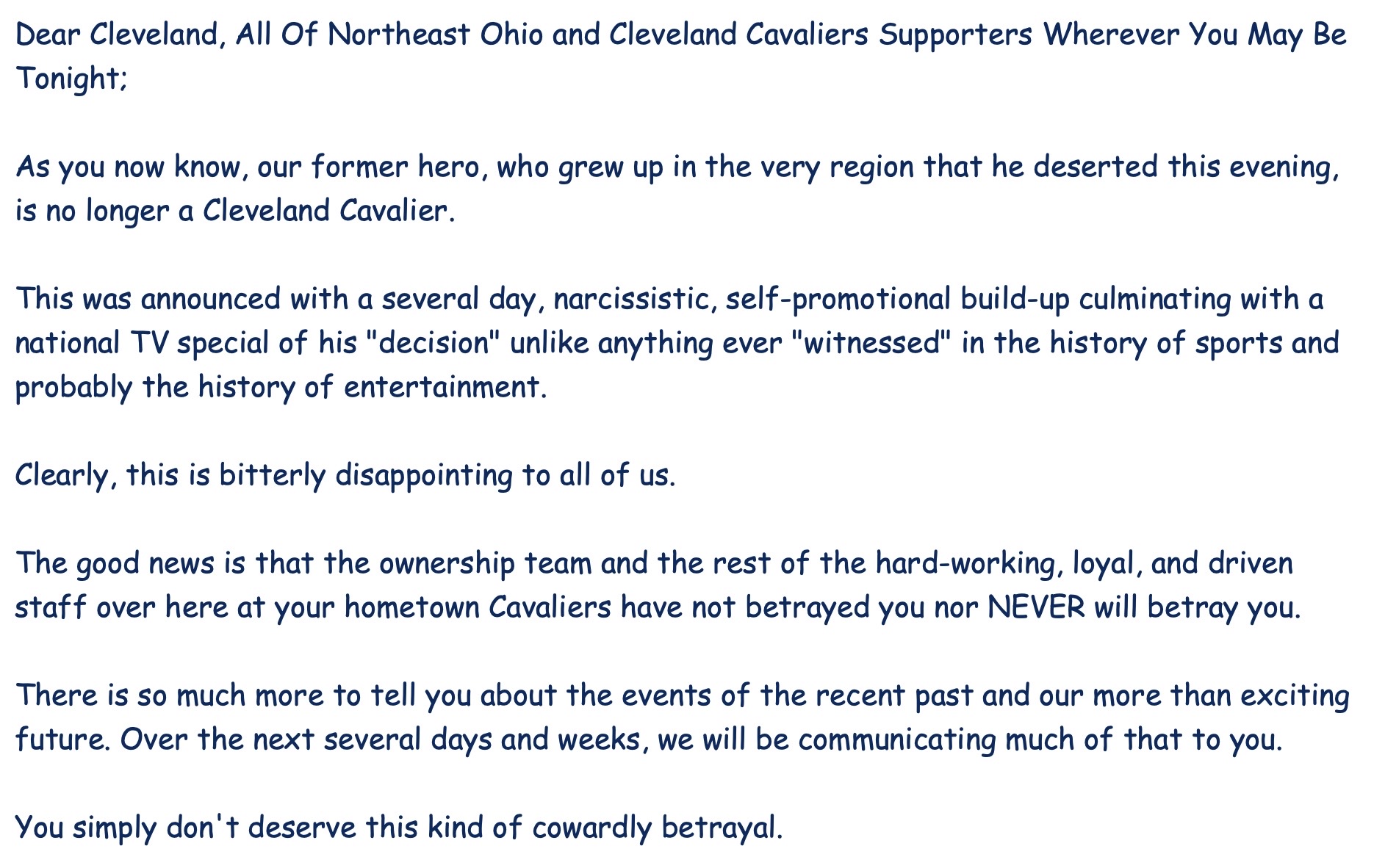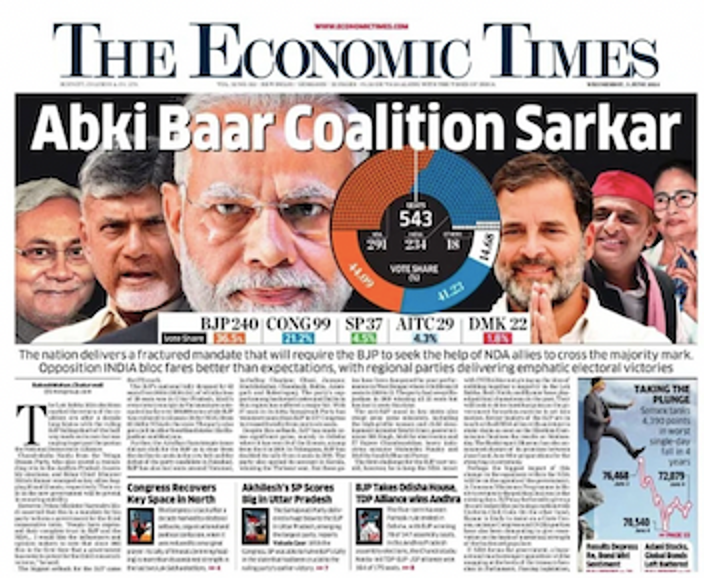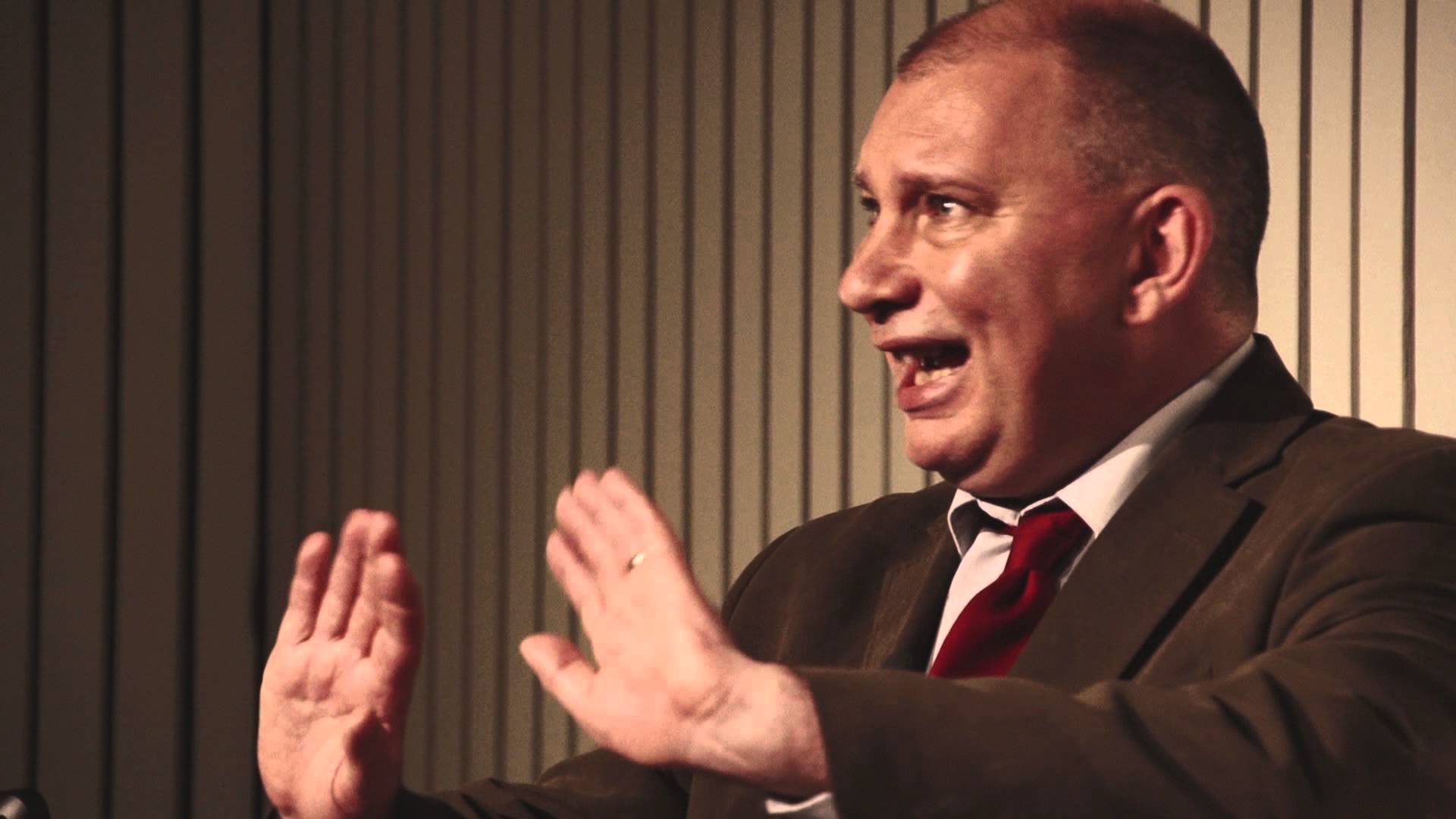
Trinity Term ’24 Best Before: Unarchived


It’s not speaking ill of the dead if it’s honest
TW: Mentions of domestic abuse.
The family of OJ Simpson have asked for “privacy and grace” at the time of his death. The announcement was made on X, formerly known as twitter, on Thursday April 11th, a day after his death. The Telegraph reported that he died, “aged 76, surrounded by family” from cancer: comfortably spending his last days in his reported one and a half million-dollar house.
For those of you who might be unaware of OJ Simpson’s infamous past, in short, his sport and movie stardom came crashing down when he was accused of the murder of his ex – wife Nicole Brown, and her good friend, Ron Goldman. In what many publications called the “trial of the century”, Simpson was acquitted. However, just two years later in 1997, he was found ‘liable’ for both victims’ death and ordered to pay 60 million dollars. With this in mind, I’ve been wondering whether I really need to respect his privacy or honour his memory. No, I don’t think so.
The day before his death, April 11th, I wouldn’t have forgiven OJ Simpson’s actions, so why am I being asked to do that right now? And I certainly don’t want to read what Yahoo calls “touching social media statements,” knowing that Nicole Brown and Ron Goldman’s death was nothing short of painful and public. Pictures of their bloody, beaten bodies were plastered across the media at the time and have resurfaced now.
Whether or not you think he was a cold-blooded killer: OJ Simpson was a vicious man. Before serving nine years in prison for kidnapping, armed robbery, and burglary with a firearm, he had been reported to the police by Nicole Brown for domestic violence on numerous occasions. Five days before the murder of Brown, she called a domestic violence center hoping for help to disappear somewhere Simpson could not find her. Eight months before her death in June 1994, she called the police saying, “He’s back.”
This was not the first time she’d tried to get the police involved. In 1989, Simpson beat Brown so badly that she required hospital treatment, which he was arrested for. At the time of his arrest, he told police that he couldn’t understand why they were arresting him. They’d been called to the house nine previous times for domestic disturbances. Clearly, Simpson failed to treat the victims of his violence with little of the “grace” that we’re being asked to give him.
‘The world’s most famous case’ put every detail of Brown and Goldman’s gruesome death in the public light. The Brown family were forced to face traumatizing accounts from the years of violence and abuse she faced during her decade and a half long relationship with OJ Simpson. The sad truth remains: none of us will ever know whether he did it, all we can do is speculate.
Surely his behavior in that relationship should be enough to stop him being celebrated in death. But our society loves to canonize the dead. And, for now at least, cancel culture seems to die with the individual: most of the internet turning their attention to whoever has most recently used their influence controversially. But it’s not like the memory of injustice can be as easily blotted out the victim’s family. And social media certainly seems to find it more straightforward to forget when the person who has died is a world-famous sports star known for being the first National Football League player to ‘rush’ for over 2,000 yards in a single season.
It’s a strange, yet common phenomenon that when someone (especially if that ‘someone’ is a celebrity) dies, they suddenly become the greatest, most loving friend to all who knew them. It’s as if some internal mechanism kicks into gear and no one is allowed to remember who they really were. No one wants to be remembered for one thing, but they often are. And if we were to pick just one thing for OJ Simpson: it seems acknowledging his disturbing past seems more appropriate than celebrating his sporting success.
Nicole Brown hasn’t been remembered by society for much more than her marriage and death. A prison-like marriage, a death that was murder. This legacy has followed the ghost of Nicole, so why should Simpson be gifted the nuances we don’t give to Brown? President of Pro Football Hall of Fame, Jim Porter, remarked that “on-field contributions will be preserved in the hall’s archives in Canton, Ohio.” Why does he get to mention only the “on-field contributions”, and neglect the domestic abuse? Broadcaster of NFL, Bob Costas, told CNN that, “he was not just admired, but beloved.”
I’ve always wondered if this tendency to glorify the dead comes from a place of fear, especially when it comes to celebrities. I have a theory on this: to us ‘normal people’, celebrities are unattainable, almost God-like figures. People worship celebrities for their talents, and I, too, find myself sometimes forgetting that their lives span out the same as ours do. Of course, status doesn’t avoid illness, accidents, and death. So, when they die, and it is publicised everywhere, we’re reminded of our own mortality. Perhaps the way we deal with this is to make up stories, to make us feel better. To make us feel like when we die, we’ll be given the same treatment. They, whoever they are, will forget about the bad things we did (like that time you cheated on an exam).
OJ Simpson certainly isn’t the only example of this. John Lennon never denied the allegations that he domestically abused his first wife, Cynthia Lennon. During an interview within Playboy magazine in 1980, Lennon said, “I beat her and kept her apart from the things that she loved… I used to be cruel to my woman, and physically – any woman. I was a hitter.” Yet Lennon is immortalised as a rock legend, his shocking statements dismissed.
Only recently have narratives like Lennon’s, or Simpson’s, begun their unravelling. Sofia Coppola’s 2023 feature film, Priscilla, aims to dismantle the picture of Elvis Presley that Baz Luhrmann’s 2022 biopic ELVIS curated. Priscilla reveals the dark, and true side of Presley’s character—rightly so—letting us in on her own narrative of Elvis’ domestic abuse and instability.
I hope OJ Simpson’s death marks the beginning of the end of the canonisation of celebrities who simply don’t deserve our respect. We must do this regardless of what they’ve achieved. I hope instead we start talking about their victims.
OJ Simpson might have been a brilliant athlete, but he was undoubtedly a questionable human. Don’t let the scary fact of his death be reason to forget why you didn’t pay respect to him in the first place.∎
Words by Violet Aitchison.

Is the Tobacco and Vapes bill more than smoke and mirrors?
“Yeah, just a pack of straights please, mate. Actually, you know what, I may as well grab two of them.” Alice, a 51-year-old IT manager, is skulking outside her local off-licence. She can just about hear Evan, her long-time friend (and occasional romantic partner), trying to sound relaxed around the other side of the door. Soon Evan emerges, shooting Alice a triumphant look. He makes sure the man behind the till isn’t watching through the window, before sneaking one pack into Alice’s coat pocket. “I’ll pay you back,” she assures him, “commission included.” The year is 2061, and it pays to be 52. Your friends flock to you every time they run out of cigarettes.
I don’t think I’m alone in finding the whole idea of the ban slightly bemusing. Many have pointed out, given the growing support for the legalisation of cannabis, the possibility of hearing something along the lines: “I promise there’s no tobacco in this, officer. I swear I only smoke joints.” Maybe these scenarios are why I can’t take the smoking ban seriously. Maybe I should try to feel otherwise. There is, after all, quite a lot at stake in this issue. For once it felt to me like both sides of a debate in Parliament had genuine, thought-out reasoning behind their stances.
On 16th April, when the Tobacco and Vapes Bill passed its second reading in the Commons, its opponents were right to worry that the plan to permanently ban anyone born in or after 2009 from smoking would lead to a significant drop in tax revenue. Its defenders were equally right to point out that the money spent by the NHS on treating lung cancer patients is by no means trivial. It was hard not to argue that this sort of measure is overly paternalistic, and yet health secretary Victoria Atkins was (for a change) probably onto something in arguing that there is “no liberty in addiction.”
The reason for all the jokes about this bill, the weightless feeling of its discussion, is that people don’t actually believe the ban will happen. Once the issue expires from the news cycle, ready to make its slow progress through Committees and The Lords, surely the government won’t go through with it?
This is a government that had to give up on building a railway. They might have been justified in doing so, but the slow death of HS2 does raise a question about what, if anything, the British State can achieve when they couldn’t even do that. This is only the most notable in a litany of failures. The National Audit Office predicts that Rishi Sunak’s Rwanda scheme, which he is so desperate to have take up as much airtime and as many headlines as possible, will cost taxpayers around £1.8m per deportation. That’s assuming they manage to get any planes off the ground, which so far, so good, and so predictably, they haven’t.
Closer to home, anyone who has even a passing acquaintance with the Oxbridge admissions system (or British Education in general) must have looked on with resignation when Liz Truss revealed her grand plan to force both Cambridge and Oxford to offer interviews to every student with 3 A*s at A-Level under their belt. Frankly, this was never going to happen, given the current timetable for UCAS and how independently the Colleges (let alone the Universities) operate. But the absurdity of suggesting the key site of government intervention to ensure educational equality should be over-achieving 18-year-olds can’t be lost on us either. Government policy has become equivalent to placing ineffectual plasters on randomly chosen wrong wounds, but even this makes an assumption of benevolence that is increasingly tenuous. It’s getting harder and harder to think anything else: the government isn’t trying to help anyone—it’s all just smoke and mirrors. A shady, self-interested performance.
Whatever the root cause of this mess is (call it the gamification of politics; call it institutionalised incompetence; call it the lasting stench of Thatcherism), the smoking ban can be a moment for reflection. When was the last time the government tried something like this? For once, they have tasked themselves with the improvement of people lives. They have said, “I think it would be better if our society were somehow different.” Watching politicians make the case for a hill they are proud to stand on was a breath of fresh air.
We live in an era in which the very people at the top of the state believe that the state is fundamentally rubbish at everything. Dressed up in the language of fiscal responsibility and business-friendliness, we have witnessed further and further abdication of responsibilities until there is nothing left but a hollowed-out shell. Politicians are merely interpreters of realities beyond their control. They are captains bailing out a sinking ship, buffeted by waves between great unknowable shores.
The debate about the Smoking Ban reminds me a lot of the Covid debates. Perhaps it’s the differing effects on the young and old, or the push and pull between public health and individual choice. Either way, 2020 to 2022 represents a brief, nightmarish inversion of the long trend against government involvement in people’s lives. With climate change, automation, and demographic aging coming down the track, we are not past crises of magnitudes that feel impossible to face up to.
We can take an example from the Smoking Ban, though. It’s a chance to have a serious look in the mirror: at what we are doing, what we are facing. We can think about why we do the things we do in our society, and we can think about how, in ways we can actually imagine impacting each of our lives, we might do them differently. I’m not sure whether the Smoking Ban is the right idea, but at least it’s a substantial policy. Who knows? They might even follow through with it.∎
Words by Joseph Rodgers.

‘The Times Young Power List’ made me cry
Scrolling through depressing articles about members of the Garrick Club, and why being thinner makes women richer, I burst into tears. ‘The Times Young Power List’ had interrupted my scrolling. Celebrating “hard work and ingenuity,” the profiles of 25 inspirational young people (under-30s) struck a chord with the crippling worry I’ve been experiencing as each new rejection email pings into my inbox. I never want to read ‘Unfortunately’ ever again. And this article is blissfully lacking in ‘unfortunatelys’. It is also an antidote to the irrelevance of Cherwell’s upcoming BNOC list.
Reading about Joe Seddon, who actually did something productive with the “social-mobility guilt” he felt whilst studying at Oxford, I couldn’t help but think I really should stop playing my tiny violin. Maybe I should start building an app like Zero Gravity. Leo Reich’s comedy career is a nice story and James Dacombe’s journey from building apps and websites for fun (starting to feel like the universe is telling me something) to developing a patch which monitors brain signals was inspiring. The article recalls the racist abuse that Rashford, Sancho, and Saka faced after the Euro 2020 final, and just how resilient Bukayo Saka has been, achieving the accolade of the Professional Footballers’ Association Young Player of the Year in 2023. Reading about Jamie Chadwick being the only woman to win a Formula 3 race and Ahana Banerjee founding an app for tracking your skincare, my laptop screen started to go fuzzy. Banerjee is quoted advising readers to “learn how to code. It empowers you with the autonomy to bring your ideas to life.” I went to wipe my glasses and realised I was crying.
There are so many pictures of successful women on the list, so many women who were once little girls reading lists like this about successful men.
I never knew that Leah Williamson was born with inward-facing toes, but I can hear the parents screaming “Get the girl!” as she played on an all-boys team against another all-boys team, the memory later recounted in her book, You Have the Power. Leah Williamson is the only person who has ever made me think that accepting an OBE isn’t an act of supporting neo-colonialism. Instead, the photos of her at Windsor Castle with her family holding her honour fill me with hope. When the Lionesses won the Euros in 2022, I discovered feeling emotional whilst watching sport. Despite knowing nothing about sports injuries, I scoured her Instagram like a madwoman for ACL recovery updates. It’s thanks to the awareness raised by the likes of Williamson, Beth Mead, Chloe Kelly, Gabby George, Jordan Nobbs (the list goes on) about the much higher instances of ACL injuries among women that studies like Project ACL are being funded. Even Leah Williamson’s Dyson adverts make me teary. I swear, I don’t cry all the time—my Mancunian father raised me to bury most of my emotions. I’m just having a rebellious phase.
Reading Ambika Mod candidly tell The Times: “If I were a Shakespearean hero, my tragic flaw would be ambition” brings a lump in my throat. Her portrayal of Shruti in the BBC’s This Is Going to Hurt was devastating and beautiful. Playing Emma in Netflix’s One Day, she brought out the cringing insecurity and pretentiousness of being an English student so wonderfully that at 3am, whilst I fell apart during the last episode, I alarmed my boyfriend with the no-context text: “No more cycling, promise me”. But Ambika Mod well and truly broke my heart when she told Glamour: “Growing up I didn’t see myself on screen and that was a massive part of me not seeing myself in certain rooms or not thinking I deserve certain things…I just didn’t see myself as a romantic lead.”
Luke Littler, 17, English darts player, provides light relief as I recall how all my friends suddenly revealed themselves to be lifelong darts enthusiasts when he became famous last winter. Oxford’s own Grace Beverley makes the list and although just watching her ‘days in the life’—let alone buying one of her planners—makes me feel inadequate and exhausted, she discusses the lack of venture funding for women with HM Treasury. I’ll be honest, I don’t even fully understand what exactly ‘venture funding’ is but I do know that she’s advocating for women and that’s beautiful enough. Sharing her discussions with the Economic Secretary on TikTok, Beverley explains some of the reasons why venture funding for women is important. As Beverley puts it, “we know that women put women in leadership positions, we know that women pay women more.” Her words have become a mantra in my head.
I’ll be the first to admit I’m very sentimental at the moment, weeping when I run out of pesto or pasta. Maybe it was the Women’s Dinner which set me off, a hall full of women, celebrating being women in a college which didn’t admit women until 1985 (I’m sure you can guess which). Our Women’s Officer said a few words and I had to use my napkin as a tissue.
I now exclusively wear waterproof mascara. And though ‘The Times Young Power List’ isn’t able to stop the never-ending flow of rejection emails; and although the biggest takeaway seems to be that we should all become sportspeople or build an app, it made me cry in a happy way. Once I had finished drying my eyes, I realised the Young Power List was compiled and written by women. Hannah Swerling, Katie Tarrant, Louise Eccles, and Sharin Hussain, I love you.∎
Words by Isabelle Proctor.

The #Legacy of the funniest man in sports history
LeBron James’ Los Angeles Lakers are in crisis. They just got crushed in the first round of the playoffs. Their coach has been fired. The future of the greatest basketball player of our lifetimes is in doubt once again.
But LeBron added to his greatest legacy in his most unremarkable season yet. Because LeBron James is funny. He is funnier than every other transcendent athlete in the history of sports. Over his career, he has averaged 27 points per game, seven assists, and eight sideways crying-laughing emojis per tweet. He called Donald Trump “U bum.” He makes his opinions clear on the quality of his teammates’ jokes: “That was a good one. NOT.”

He was once not funny.
In 2010, LeBron sat in a pink-striped, button-down shirt and announced in one of the most iconic American sports quotes of the 21st century that he was “taking his talents to South Beach.” In other words, he was abandoning his hometown team he had been on for seven seasons, the Cleveland Cavaliers, to join a new superteam in the Miami Heat. He did all of this on a special program on ESPN made just for him called The Decision, but only after thirty minutes of the pointless rambling that only sports panellists on TV have mastered.
Dan Gilbert, the owner of the Cavaliers, etched these parting words in Comic Sans forevermore: “But the good news is that this heartless and callous action can only serve as the antidote to the so-called ‘curse’ on Cleveland, Ohio.” It sparked a nationwide controversy. The Yahoo! Sports website called LeBron’s actions “unnecessary, gratuitous, and ultimately disastrous.” Somehow, this was a big deal at the time, and somehow, people did not find this funny.

The whole affair was unprecedented in sports history. The media team was made up of his high school friends. No star athlete had ever purposefully attracted so much publicity to their new choice of team. The hype for his next season revitalised interest in the NBA. He lost the championship.
LeBron’s tenure on the Heat was not a failure—he ended up winning two championships and then (hilariously) returned to the same Cleveland team whose owner had called his original decision a “cowardly betrayal.” But the backlash to his switch and his championship losses brought out one of his funniest attributes: his insecurity.
True to form, LeBron took the corniest nickname possible—’The King’. He took this nickname before he had won an NBA championship, so mocking the new moniker was a bit too easy. Gilbert could attack “THE SELF-TITLED FORMER ‘KING,’” and LeBron’s passionate defence of his beautiful, corny nickname would colour his career.
The phrase “#WashedKing” (his aesthetic appreciation for brevity sometimes shortens “king” to a crown emoji) is a mainstay of his tweets. LeBron has had a bit of an obsession with being washed up in the later years of his career. As time has worn him down from being the greatest player in the league to simply one of the greatest, LeBron turns to the word “washed” more and more.
He’s now prone to go on X Formerly Known As Twitter, retweet a report of a good performance, and comment only “#WashedKing” (followed by a silence emoji and crown emoji, of course). LeBron knows his time as the greatest player will one day be a distant memory. He knows the finite space all mortal bodies have for physical greatness is running out for him. He knows the devastating reality that his adversaries, just entering the start of their own athletic primes, will pounce on his weakness that age brings. He knows that one day, their flash of superhuman glory that only sports can offer will too end as quickly as his did. And so he tweets #WashedKing.
Michael Jordan. Lionel Messi. Tom Brady. Some athletes transcend humanity and become icons. They become backed by the combined forces of multi-billion dollar companies and legions of adoring fans. They were once humans, but now they are ideas—concepts of greatness and strength as old as our myths—only briefly manifested in the recognizable form of a human. LeBron is not one of them.
Everything about LeBron just feels a smidge too forced. Behind Nike and the NBA’s millions of dollars of smoke and mirrors, there’s a fundamentally lame, not-so-self-assured face staring back. They can fill the airwaves with advertisements for him, they can promote his brand at every step of the year, but they cannot stop the man from posting about #TacoTuesday on his Instagram story.
The whole absurdity at the heart of sports fandom—wearing other people’s names on your backs, rabidly rooting for people you don’t know against other people you don’t know—gets exposed once viewed in LeBron’s light. In sports, all the hate that usually gets directed at an idea gets turned on a great athlete: how could you possibly do actual harm to a figure so rich and so famous? But it’s different with LeBron—you can see the psychological impact on him in real time.
Along with the inevitable hate, the psychotic cult of athletic greatness becomes clearer when it’s about LeBron. Take when LeBron (username: “kingjames”) posted on Instagram that “If you ever see me fighting in the forest with a Grizzly bear, HELP THE BEAR (crown emoji).” Fox Sports host Shannon Sharpe responded, “I’m pouring honey on you, GOAT. It’s illegal to kill a bear unless being attack [sic] (five sideways crying-laughing emojis).”

Does this insane behaviour even get noticed if it’s about non-LeBron athletes? Would we even see it as funny? Would we ever realise how much we idolise great sports players if we couldn’t see the contradiction of LeBron’s fandom and LeBron’s actual personality?
If your feed for Instagram reels or TikTok has been clogged with LeBron James, it”s not an accident. Maybe you’ve seen people calling him pookie bear or playing “You Are My Sunshine” over videos of him. Maybe you’ve seen his AI-modified voice claiming he predicted the start of World War II. You might have seen real pictures of him reading interesting books on camera before a game—the books just always happen to be opened to the first page.

While your brain gets rotted by a thousand edited LeBron Jameses, you should remember that this is his ultimate legacy. No other great athlete has the required awkwardness to be parodied, edited, and stamped into our culture like this. LeBron wanted to be famous. He tried his hardest to project an everlasting image. He got his wish.∎
Words by Myles Lowenberg.

Parasites, power, and presidential candidates
On 27th June, a 77-year-old man and an 81-year-old man will walk into a room. They both experience memory lapses, struggle with mixing up names of individuals, and face other cognitive issues. They have heart issues, and the natural onset of mental faculty decay with age. What will ensue? Apparently, the US Presidential Debate.
When Joe Biden, 78, won the 2020 presidential election, he shattered the record for the oldest person to have held office – a record only set in 2020 by Trump, who took office at 70. Now, Biden, 81, is seeking re-election and, if he wins, will be the first octogenarian to hold the office. His main contender, Trump, is 77 (yes, it’s been seven years since he was first elected). Despite all the (likely bogus) health reports published insisting that both men are in “perfect condition”–in Trump’s case claiming to be the “healthiest individual ever elected to the presidency”, the question still arises: would you trust your 81-year-old grandpa to run any country?
Biden’s mental decay has been an unwelcome spotlight in his campaigns; various (admittedly hilarious) faux pas have raised severe national concern about his cognitive functioning and ability to carry out the tasks of the presidency. Justice Department Special Counsel Robert Hur’s characterisation of Biden says it all: “a sympathetic, well-meaning, elderly man, with a poor memory”. In February, Biden reported a conversation from 2021 that he had with Angela Merkel as having been with Helmut Kohl. Significantly, Kohl hasn’t been Chancellor of Germany since 1998, nor even alive since 2017. In the same week, he referred to Francois Mitterand, who was in power from 1981 to 1995, as the current French President. Perhaps it’s nostalgia for a time when his mental faculties were at their peak.
Special Counsel Hur’s report further stated that during interviews, Biden had failed to remember the dates of his tenure as vice president and, most painfully, couldn’t recall when his beloved son Beau had died. In an emergency press conference that was meant to be a devastating response to the report’s accusations, Biden only confirmed the fears when he referred to Egyptian leader Abdel Fattah El-Sisi as the “president of Mexico.” Polls have consistently shown that the majority of Americans are concerned Biden is too old to serve a second term and believe that he has declined cognitively and physically.
Independent candidate Robert Kennedy Jr, (a sprightly 70 compared to the other candidates) came out last week with a statement saying, “a parasite had eaten part of his brain”. The parasite was first spotted in his brain in 2012.
All three men have gone to extensive lengths to reassure the public about their fitness, physically and mentally, as age becomes a key concern in the lead up to the election; but these reassurances are shaky, and do not seem to be altering public opinion significantly.
In 2023, Dr Bruce Aronwald, Trump’s personal physician, writes that the former president’s most recent “comprehensive examination” was 13th September 2023, and that his “cardiovascular studies are all normal and cancer screening tests” were negative, and that Trump had “reduced his weight.” The letter makes broad statements about Trump’s health but does not include information about the types of tests that Trump took or what the results were. It doesn’t even include basic information that Trump’s physicians have shared in the past, such as his height and weight, cholesterol level or blood pressure. In 2015, Trump’s campaign released the health report declaring that he would be the “healthiest individual ever elected to the presidency.” It was later revealed that Trump dictated the letter to the physician himself.
In January, Kennedy documented a skiing excursion with professional snowboarder and Olympic gold medallist Torah Bright who called him a “ripper” as they raced down the mountain. In June 2023 a camera crew was at his side while he lifted weights, shirtless, at an outdoor gym in Venice Beach. At the start of this year, he challenged Biden and Trump to a fitness contest, posting a workout video on social media, writing: “Getting in shape for my debates with President Biden!” Notably, in a 2012 deposition for his divorce proceedings, Mr. Kennedy stated that he “has cognitive problems, clearly” citing short and long-term memory loss in arguments that his earning power had been diminished by this decay in cognitive function caused by the aforementioned parasite in his brain.
On 28th February of this year, the White House put out a report regarding Biden’s health “requested by the patient.” It cites anti-coagulation heart medication the President has been on, “normal for a man of his age” and degenerative osteoarthritic changes, for which physical therapy has been prescribed, as well as stating that Biden works out “five times a week”. Obviously released in an effort to mitigate the rising public concerns about his age, the report concludes that “President Biden is a healthy, active, robust 81-year-old male, who remains fit to successfully execute the duties of the Presidency.” Notably, the White House has dismissed the idea of Biden taking a cognitive test, saying Dr. O’Connor does not believe it’s “warranted because of just who [Biden] is as president of the United States and everything that he has to deal with.” Aside from the official report, there have been a handful of photo-ops last summer of Biden riding along bike paths in Rehoboth Beach, Del., where he has a beach house.
It seems like a replay of the 2020 election; incumbent Trump, 73, against Biden and Bernie Sanders; blur your vision a little and distinguishing these slightly wrinkly, old, snowy-haired men apart becomes harder. The last three US presidents – Obama, Clinton, and Bush – are all currently younger than the three men running. Age limits on candidacy seem an obvious solution, but ageing is not a linear process; all septuagenarians were not created equal. Family histories and pre-existing health conditions play a large role in life expectancy and mental functioning. Thus, uniform judgments limiting the rights of a 73-year-old from running despite perfect physical functioning are dubious. However, quite apart from the health concerns that come with age, though they are significant, are the more fundamental questions of democratic representation. When Biden was born, World War II was still raging; Israel was not a country; India was still a British Colony; Winston Churchill was Prime Minister of the UK; and Velcro hadn’t been invented. There is significant evidence to support the idea that political preference and view formation happen early, in the adolescent and early adult years, and they remain largely stable after that. This implies that Trump, Biden, and Kennedy’s site of preference formation was the political climate of the 60s and early 70s at best – and it shows. Their references are dated, and their concerns are too: Trump frequently refers to “Communists” and “Marxists” in his speeches, echoing an era of bygone fears.
Notably, countries that are less free, according to the Freedom House Index, are more likely to have older leaders. When compared to the world average age of leaders, 62, the median age of those classified “not free” is 68, and 60 in those classified as “free”. Biden is amongst the 5% of all leaders who are in their 80s, and one of three “free” countries with leaders over 80 (the others two being Ghana and Namibia).

Source: Pew Research Center, Freedom House Data
Each of Biden, Trump, and Kennedy are significantly older than the average American, and the question of whether they–or any senior citizen candidate-can adequately represent the public’s interests, let alone youth interests, is dubious. And yet, it is one of these three men that will ostensibly be the ‘leader of the free world’ (as much as that is a misnomer for the office) come November. What does that say about the US presidential requirements? I don’t know, but I will be tuning in on 27th June with popcorn, to watch one angry deaf grandpa shuffle slowly across the stage to argue with another, slightly angrier, slightly deafer, grandpa. ∎
Words by Treya Agarwal.

In Britain, you can’t control the weather, but you can control the elections
Desperate to be more entertaining than Matt Hancock’s TikTok account, Rishi Sunak was given a helping hand by the press yesterday, as rumours about the general election ran wild. The news was flooded with live feeds of Number 10’s closed door, journalists huddled together for warmth in the pouring rain, all waiting for confirmation of the inevitable. Larry the cat looked bored. He was also probably wondering why the BBC’s Chris Mason was so “excitable.” Yes, we were waiting for Sunak to announce the date of the general election. Yes, we had been waiting for a while. Yes, the PM is required to dissolve Parliament 25 working days before polling day.
At 5pm yesterday evening, Sunak’s bold claims concerning “hard-earned economic stability,” “stopping the boats,” and having “seized the opportunities of Brexit” were upstaged. In a typically British fashion, commentators focused on the weather whilst waiting for Sunak to exit Number 10. The Mirror, the Metro, and the Daily Mail all seem distracted by the return of Tobias Gough, the so-called “hot podium guy”. This adored sound engineer also appeared at the lectern before Theresa May’s and Liz Truss’ final moments in office. Not a good omen for Sunak, who delivered his statement that a general election will be held on 4th July at said lectern, amidst torrential rain and Steve Bray’s musical accompaniment. Bray is an anti-Brexit campaigner who makes such appearances across Westminster. Journalists jumped at the chance to tell us that the song blaring down Downing Street, drowning out Rishi Sunak, was ‘Things Can Only Get Better’; New Labour’s election campaign anthem from ‘97. Sadly, even the comic genius of the independent DJ of this impromptu concert couldn’t get Rishi to bust out a move, Theresa May-style. The downpour proved so distracting that ‘drowning street’ is now circulating on X (formerly Twitter).
In many ways, the May showers and early election shouldn’t come as such a surprise. Things are only going to get worse, and perhaps it makes sense that the PM would want to kick off his campaign on the back of what may be the only positive note of the year: inflation finally dropping to 2.3%. What is shocking is the fact that Rishi Sunak has the right to keep Parliament and the public on their toes as to when the general election will be held. The 4th of July is an interesting choice: Independence Day in the US, just before private schools break up for the summer holidays in the UK, and just after schools in Scotland have broken up for the summer holidays. Very tactical, Rishi, scheduling a general election when potential opposition voters are due to be abroad. University students are also likely to be at home, perhaps returning to the Home Counties and more conservative parents. This is a pattern of behaviour: in a thinly-veiled attempt at gerrymandering, the Elections Act of 2022 ushered in voter ID under the guise of preventing voter fraud. Photo ID became a requirement—notably accepted forms of ID do include the 60+ Oyster card but do not include the Student Oyster card. Rolling out the red carpet for the Tories’ target demographic. According to the Guardian, there are eight million unregistered voters in the UK, the Elections Act seems to be capitalising on this.
The Tory commitment to circumventing democracy is almost as consistent as Steve Bray’s anti-Brexit campaign. We have also seen the Electoral Commission (which regulates UK elections and donations) come under the influence of Parliament. Gov.uk states that the Commission “should work closely with the Speaker’s Committee on the Electoral Commission, as well as the UK Parliament, to ensure public and democratic accountability”. Coincidentally, Michael Gove, the Secretary of State for Levelling Up, Housing and Communities, sits on that very committee. The list goes on: in 2019, Johnson prorogued parliament just before the EU summit, in 2023, Sunak brought Cameron back on board as Foreign Secretary, wiping Cameron’s slate clean of running away after unwittingly bringing about Brexit. And last month Sunak effectively held MPs captive in order to clear the Rwanda Bill.
Deliberation over when the election will be held has been repetitive. There has been a bizarre fixation on whether Sunak would schedule the election for a Thursday. It was apparently a point of great interest that the last general election not to be held on a Thursday, was Tuesday 27th October 1931. Lo and behold, it is on a Thursday this year! Obviously no one told Parliament that Thursday is the new Friday. Concerns about voters being abroad during the summer holidays had also affected projections for Sunak’s decision. But, thanks to the Tories’ overall disinterest in stopping global warming, the UK might be a sunnier alternative to Lanzarote this year.
Suspicions were piqued when it was reported that David Cameron was flying back from Albania, Grant Schapps delayed his departure for Lithuania, and Jeremy Hunt cancelled an appearance on ITV. Sensationalized reporting, verging on erotic, emerged as journalists searched for ways to shock. The Telegraph reported “General election speculation mounts as Cameron cuts short foreign trip”—not a good enough reason to use ‘mount’. Sky News was cheeky: “Sunak stays coy on election timing as speculation mounts”. More mounting. Even Stephen Flynn (the SNP MP who asked Sunak about the election date in PMQs today) was reported by the Guardian saying “Sunak is playing games with the public”. The Times epitomised the absurdity of the moment as “Sunak teasingly responded: ‘Spoiler alert – there is going to be a general election in the second half of the year.’”
The comedy continued after Sunak made his address, critiquing the PM’s decision to seize upon the temporary decrease in inflation, The Times described the announcement as “Going off at half-cock”. The emphasis Henry Zeffman for the BBC put on that “soaking wet lectern” was particularly enjoyable. The Spectator recently asked the groundbreaking question ‘Is Keir Starmer too boring to be prime minister?’ Seeing as the most exciting part of Rishi Sunak’s tenure appears to be the prospect of him leaving, we could apply the same question. The most memorable stories about Sunak have been his catastrophic taste (for Adidas) in footwear and his wife utilising tax loopholes—and now his very wet speech.
Whilst I thoroughly enjoyed the edits of Sunak’s sodden suit, as he tried to speak over his unsolicited soundtrack, I can’t help but think that the media went a bit hyper. We all love a bit of excitement, but have you tried watching the last four minutes of Bridgerton Season 3? News feeds seem slightly deflated now the election date is confirmed and they can no longer accuse Sunak of being coy. Instead, we can all breathe a sigh of relief that the Tories’ reign of terror may soon be over.∎
Words by Isabelle Proctor.

Mock-the-Week of an election
Last week’s announcement of a general election, given by Rishi Sunak in the pouring rain, will likely have put a damper on some people’s evenings (yes that is a water pun, yes I think I’m funny, yes there will be more). A week in, we’ve already had enough memorable moments to fill a scrapbook. For anyone caught up in sixth week work, or for anyone disinclined to read reams of articles saying slightly different variants of the same thing about the newest gaffe, here are the flattering and not-so-flattering highlights.
First up is a party that I would be willing to bet my degree will not be first up after polling day: the Liberal Democrats. Disappointingly, they’d had a comparatively semi-competent go at things to start off, and hence had been completely forgotten in the media. That was until Ed Davey got sent to Cumbria to talk about sewage, and someone in the fountain of wisdom called Lib Dem HQ decided to have him talk about it while paddleboarding. He fell off. Multiple times. At least one of which he claimed was on purpose. They may have finally made a splash in the headlines, but a success this was not.
Next up is Nigel Farage and the Reform party, which he sorta-maybe-kinda represents. While giving a firm “no” to actually standing for the election, Farage has nonetheless made several media appearances about said election in the last few days. Because Reform plan to field candidates in every seat, most pollsters see them largely as a drain on the Tories, rather than as a party with a legitimate chance of gaining many (any) seats. However, with Farage declaring them the “new Conservatives”, and with increased coverage in the Telegraph, perhaps future weeks will offer the party a chance to become a bigger fish in the big pond of politics.
Then there’s the Labour party, who up until Wednesday were having a wonderfully boring and boringly wonderful time. In an election where one of the public’s top priorities has consistently been stability, boring doesn’t seem like that bad of a look. Throw in the end of the police investigation into Angela Rayner, and things were going swimmingly. Or perhaps I am a little biased. Either way, even the most arch-Conservative couldn’t find a sharper insult than boring (so what?) or accusing Labour of having “no plan” (it does, six pledges anyone?). This Wednesday, however, the news cycle picked up the Diane Abbott saga once again, with revelations on Newsnight that her internal investigation had been completed months ago, and yet a decision on readmittance had not been taken until Tuesday. Coupled with conflicting accounts between Abott and Keir Starmer over whether she was “barred” from running again as Labour’s candidate for MP in Hackney North and Stoke Newington (she claimed she is, Starmer says no decision has been taken) and something of a hole has been poked in Labour’s previously watertight PR.
To explain in its entirety how we and Abbott got here would require more words with greater insight into Labour’s factional politics than I have time to write or you have time to read. But it caught the media’s attention, and once something reaches the top of BBC Live, little can move it. It’s probably not the headline that Starmer was looking for, but it’s certainly one journalists will enjoy. For what captures the journalistic imagination more than the appearance of internal party strife?
Finally, we turn to the party presumably best prepared for an election their leader decided to call, the Conservatives. Now I am no fan of the Tories or their government, but I don’t even have to try to twist the past week in order to make it look like a series of meanders and mistakes. The “gray vote” (i.e. the votes of pensioners and over-65s) grabbing policy of National Service was the victim of miscommunication, with one minister claiming it would be enforced by legal measures and another stating it wouldn’t. In an attempt to appeal to those older voters tempted by Reform, Sunak promised a “triple lock plus” on pensions. And then came the promise to eliminate pointless degrees and boost apprenticeships. Some of the youth might be starting to feel a little targeted. All of this is fully costed of course. Only Labour would send our hard-earned taxes down the swanny, announcing policies without considering the cost, despite that being the most repeated attack line against them. No Tory would ever do that.
But it is not policies that truly determine the course of an election. There is only one thing that matters to us common people, only one thing that will decide our votes. I am of course talking about football. More than one article has suggested that England’s fate in the Euros could impact the election. Did this get taken into Sunak’s calculations? If so, he’d clearly forgotten it shortly after, getting into hot water for cheerfully asking a Welsh audience whether they were looking forward to a tournament that they hadn’t qualified for. Starmer, an unapologetic Arsenal fan, offered more insightful commentary on some guy called Phil Foden (presumably a decent player) and his place in England’s Euros squad. I’m sure this will matter to voters more engaged with football than me. If we’re judging these candidates by their football knowledge, then I think this election already has a clear winner.
Has it only been a week? It truly feels longer. The “short campaign” (the final five weeks before an election that have slightly different rules on campaigning) has now begun, and I’m sure there will be plenty more mishaps to keep us buoyant until polling day. While, to many, the election outcome might appear predetermined, I for one will not be calling it until the final vote is cast. In these final weeks, I predict many more surprises will come over the horizon, and many more scandals will resurface from the depths. I’ll stop with the puns now: like this campaign, they have long lost their cool.∎
Words by Mhairi Beken.

O Clacton! My Clacton!
If the Tories lived roughly nine lives while they were in power, it makes sense that this election they’ll die about nine deaths. It should have been over after Vote Leave, after Strong and Stable, after Partygate, after the Lettuce. But, like a supervillain kept alive solely for the money-spinning sequel, the Tories held on to fight another day. Maybe they got a new face, some new plans, but really they were just the same old Tories, up to the same old tricks.
Now the show is finally over, and there needs to be a way of tying each tortured story line together. It has to seem like thing were always destined to end this way, that this had long been the plan. All the Tories’ ghosts must come back to haunt them, so that each can each say it was them wot won it: the scandals finally took their toll, Labour woke up and got boring again, and now, in a turn of events about as surprising as Bond besting Blofeld, Nigel Farage is back. We’ve heard everything he’s going to say before, and now even the responses are repetitive. He knows that all publicity is good publicity for him, so I’m sure he’s glad about the milkshake he had thrown at him, just as I’m sure he was glad about the one thrown at him in 2019.
He probably thinks he can win a seat this time. Perhaps he got jealous of George Galloway and bored of Richard Tice. Or, with Matt Hancock standing down as an MP, maybe Farage just wants to keep up the presence of former I’m A Celebrity contestants in Parliament: they’ve experienced genuine trials and tribulations that most molly-coddled career politicians lack. Whatever the reason for running, if Farage thinks his candidacy will do anything except boost his own ego, he’s mistaken.
When Michael Gove announced he would not contest this election, many claimed he was the most influential recent figure not to have been Prime Minister. I would argue that Farage, who, despite this being his eighth attempt, has never even been elected an MP, has a better claim to this title. The reason that David Cameron promised in his 2015 manifesto to hold a referendum on Europe was so that he could sway could-be UKIP voters. For more than a decade Farage has pulled the Tories further and further in the direction of xenophobic populism, always threatening to split the right-wing vote, but also never saying never to the possibility of joining them and, presumably, taking them over. Perhaps the best evidence of Farage’s gravity is in Labour’s current strategy. Probably smartly, Starmer has calculated that the Tories are so disliked that he just needs to be as uncontroversial as possible, and he will ease into Number 10. But what does this default politics look like? Part of it is promising to stop the boats, criticising the Rwanda policy not for its aims, but rather for its execution.
So the sad truth is that Farage’s politics have already won. He doesn’t even need to go into Parliament to make the change he’s long called for. In the speech announcing his candidacy, he lamented that this was “the dullest, most boring election campaign” because Starmer and Sunak “sound the same.” I can see why Farage might find it particularly boring. If he feels like he’s heard it all before, then he’s heard a lot of it coming from his own lips. Both parties promise they’ll be tough on immigration. Neither have any plan to change our relationship with the EU. There was a time when Farage could differentiate himself with flags and anthems, but even Labour have succumbed to that now.
This explains why it’s so hard to decipher what Farage is really fighting for. His Party is called “Reform”, and yet he promises “a revolt”. You don’t need to be Rosa Luxemburg to work out that this advertising is a little confused. During his announcement, Farage claimed that “nothing in this country works anymore”. If you read Reform UK’s policy document, though, it hardly suggests a party focused on solutions. Their headline plans for education are banning “transgender ideology” and “critical race theory”. Similarly, they advertise three transport policies they would pursue in their first hundred days in office. They would “scrap HS2” and “Stop the War on Motorists”. They do, however, offer one plan for a proactive change: “Accelerate Already Announced Transport Infrastructure.” Too vague? They give us a single sentence to flesh out their plan: “Focus on the North.” I suppose they were going for pithy.
The Clacton constituency was first made famous when its MP, Douglas Carswell, defected from the Conservatives to UKIP in 2014, becoming the Party’s first MP. If Farage really was an alternative to the status-quo, then Reform would have run a candidate in the seat in 2019. But they didn’t because Farage wanted Johnson to win, and knew that Reform candidates splitting Tory votes might stop that from happening. Only now that the Tories are certain to lose regardless, and now that the Labour alternative is not particularly alternative anyway, will Reform go for places like Clacton. Farage can have another go at Parliament, safe in the knowledge that whoever wins will have been moulded in his image anyway. Farage says he decided to run because people he talked to on the campaign trail convinced him too, but, as with 2014, one suspects less a genuine change of heart and more a self-centred calculation about remaining in the spotlight.
Another thing about Farage is that, for all his pretences to be a man of the people, he doesn’t trust “the people” much at all. Reform is an entirely top-down operation: members have no say over policy, there are no local party branches, and 80% of its funding comes from Richard Tice. There seems to have been no formal process for Farage to take the leadership off of Tice, and no sense that there should have been. Speaking about a party policy he wants to change, Farage said “I took over yesterday, give me more than 12 hours and I’ll sort a few things out.” His big Westminster successes are like this, too. I’ve mentioned Carswell, but Lee Anderson, Reform’s only MP, is another renegade originally elected as a Tory. As much as he draws the crowds, a major part of Farage’s success has taken place behind closed doors. Sunak came into power without a vote from Conservate Party members (let alone the country), and Starmer has recently faced criticism for blocking Labour candidates who have the support of their local members. Here too, then, the main parties’ candidates are fumbling their way through a playbook that Farage has long mastered.
So here we are. The son of a stockbroker is playing the outsider against the husband of a billionaire and a knight of the realm. Farage told the people of Clacton that he’d “stand up and fight” for them. I’m sure Penny Mordaunt will be proud. When Rishi Sunak debuted his shiny new Adidas Sambas, Farage mockingly claimed he preferred Adidas Gazelles. That is about as much difference as we can expect.∎
Words by Joseph Rodgers.

Your guide to the Indian general election’s surprise result
“How many seats do you think Modi will get? 300 for sure?”
At a dinner-table conversation a few weeks ago, two friends and I were placing our bets on how many seats in the Lok Sabha the Bharatiya Janata Party (BJP) – the right wing, Hindu-focused party led by Narendra Modi – alone would get. My friend cautiously said, around 300-310 (of 543); I confidently declared that I was sure they would get at least 340; far surpassing the number required for a clear majority and gaining a historic ‘landslide’ victory. The party themselves boasted what they thought would be guaranteed landslide election results; on occasion arrogantly suggesting, they would cross 400 with their ‘Chaar Sau Paar’ assertions. Suffice to say, none of this happened. For the first time in a decade, Modi and the BJP did not win a clear majority and had to rely on allies to form the government.
News outlets, exit poll predictions, polling companies, surveys, and the public were collectively shocked. A week before the elections, Home Minister and BJP top official, Amit Shah, said that the BJP were “comfortably at 300-310”. He was not alone; the Axis My India exit poll on June 3rd predicted huge wins for the NDA, projecting that the alliance would win as much as 360 to 400 seats. Chanakya, another polling organization, suggested that the 400-seat mark would even be surpassed. One factor was the widespread popularity the BJP has enjoyed in the last decade; in 2019 they won 303 seats, about what they got with allies this time, and in 2014 they won 282 – the first time any single party had won a straight majority since 1984. Modi himself has enjoyed high approval ratings for most of his tenure.

Image credit: Faye D’Souza, Beatroot News
The Indian General Election works such that each state has a certain number of constituencies, each who elect a Member of Parliament (MP) to the Lok Sabha (lower house of the Parliament). There is a total of 543 seats; each one uses a first-past-the-post voting system to decide on the winner, a legacy of India’s colonial past. In 2019, this system saw 37 parties enter the Lok Sabha elections, challenging the claim that FPTP generally produces a two-party system. This year, 642 million voters participated in the election, with 312 million women – making it the highest participation of women voters in Indian history.
The dominant parties that have historically garnered the most seats in national elections are the BJP and the Congress. Outright majorities in the Lok Sabha used to be rare, and if any single party does not get a direct majority, coalitions are necessary to form governments; this is when parties agree to work together to reach the required 272 number to form a government. Since there are few major national parties, and they are usually on opposite sides, coalitions are often formed along with state-level parties (who can contest seats in the General Election). However, in 2014, for the first time in almost three decades, the BJP won a clear majority and formed the government. They repeated the feat in 2019 with an even wider majority.
Part of the reason behind widespread pro-BJP predictions has the significant decline in electoral freedoms in the lead up to this general election (and Modi’s tenure as a whole). In March, prominent opposition were arrested with corruption charges – notable amongst these was Arvind Kejriwal, who ran for Prime Minister in 2014, and is the Chief Minister of Delhi, and Hemant Soren, Chief Minister of Jharkhand. The arrests were over ‘corruption’ charges; Kejriwal denied any wrongdoing and said the case was ‘politically motivated’. Rahul Gandhi, face of the Congress (descendant of Nehru) was arrested last year over “criminal libel”; this came after Gandhi’s extremely successful voter outreach program: ‘Bharat Jodo Yatras’ (roughly translated: Indian Unity Walk) – a six-month long, 6,713-kilometer journey from the southern tip to the northern regions of India, and a second walk from the eastern regions to Mumbai in the West. These examples of direct opposition party suppression make the result even more surprising.
The opposition alliance, I.N.D.I.A got 234 seats, far more than anyone could have predicted; the main opposition party, Congress (famous historically for being the party of Mahatma Gandhi, Jawaharlal Nehru, and the freedom movement) alone got 99. Given the atmosphere of censorship, hostility, and suppression of opposition candidates, as well as the prevailing feeling of their popularity, this is a massive setback for Modi. The surprise result has spawned a renewal of faith in democracy: the Wire wrote that the results is “the collective win of millions” and that Modi will “never again” be able to “impose his malevolent will on India” as he has in the past decade. Notably, the uncertainty and surprise results caused a significant impact on the stock market: the NIFTY index closed 5.7% lower, and Indian shares posted their worst session in more than four years. Analysts raised concerns that although the Modi government will return, the slimmer majority has raised some concern about continuity of the policy agenda and macro stability. Modi’s fiscal policy has largely touted the remarkable economic growth the country has seen post-covid, and the increase in trade with other countries.
Notably, Modi will be forced to form a coalition government, for the first time in over a decade, which constrains his ability to enact policy entirely according to the BJP’s goals and forces him to rely on allies in the National Democratic Alliance (NDA). Key allies such as Andhra Pradesh’s Telugu Desam Party (TDP) led by Chandrababu Naidu, and Bihar’s JD(U) led by Nitish Kumar, which won 16 and 12 seats and are required to form the majority. They were also former allies of the opposition alliance, making them extremely important and improving their bargaining position, constraining Modi’s ability to enact policy unilaterally. As it stands, after a few days of uncertainty, his allies have backed him and he was sworn in on Sunday, 9th June, as Prime Minister for the third time, despite the major setbacks. He is only the second person in India’s history to have achieved this feat, the first being Jawaharlal Nehru, the first Prime Minister and a key leader in the freedom struggle against the British Raj. The Economic Times front cover on the day of the election reflected the aggregated and coalitional nature of the results. Notably, had the Opposition managed to get the former allies TDP and JD(U) – leaders pictured below to the left of Modi – to switch sides, they could have ousted the BJP and Modi as Prime Minister.

Image credit: The Quint
So, who are the touted opposition who managed to shake the BJP up? The Indian National Development Inclusive Alliance (I.N.D.I.A), formed in 2023, is a big-tent party political alliance, led by the biggest opposition party, the Congress. The coalition developed out of a growing frustration with the BJP’s continued rule, bringing various regional and state level parties together; they met multiple times over the course of July and August 2023, adding parties as they went. The bloc held its first event on the 22nd of December 2023, protesting the suspension of opposition MPs under the banner of “Save Democracy”; their first joint rally was held in Bihar on 3rd March 2024. In the election, they secured 234 seats, outperforming everyone’s expectations. The Congress alone got 99, making it the Official Opposition Party (that with the second highest number of votes) for the first time in a decade. The bloc is made up of key regional parties that each have a strong presence in their state and have been vocal about opposing the BJP. Notable examples include the All-India Trinamool Congress from West Bengal, led by Mamata Bannerjee (far right in above frame) and the Samajwadi Party from Uttar Pradesh led by Akhilesh Yadav.
One of the key surprises was the state of Uttar Pradesh; being the country’s most populous with 240 million residents, it is often key in an election with a total of 80 seats up for grabs. In 2019, the NDA won 64 seats, with the BJP alone winning 62; Congress only won 1 seat, and the Bahujan Samaj Party (BSP) won 10, and the Samajwadi Party (SP) got 5. However, in 2024, the SP got 37 seats, and the Congress 6, making that 43 for the INDIA alliance. In a moment almost cinematically resounding, the BJP lost the seat in Faizabad, in the Ayodhya region of Uttar Pradesh. This region became infamous as first the site of the demolition by a Hindu mob of the medieval Babri masjid (mosque) in 1992, which led to widespread communal riots, following by a very public court case that reallocated the land for the construction of a Ram mandir (temple). In January, Modi inaugurated the opening of this temple, which was seen as a key electoral benefit for the BJP’s Hindutva agenda. And yet, despite the forced court ruling, demolitions and pomp-filled inauguration, the seat was lost to the Samajwadi Party, a proponent of caste-based social justice, with a history of banking on Muslim minorities and the Hindu Yadav community (classified as a ‘backward caste’) for its leadership. In Modi’s own constituency of Varanasi, he won only by 150,000 votes – down from his 2019 margin of nearly 480,000. In contrast, Rahul Gandhi, the face of the Congress, won by 390,000 votes in Rae Bareilly. Even more satisfyingly, the BJP suffered a crushing defeat in the Banswara constituency of Rajasthan, where on 21st April, Modi gave a speech referring to Muslims as ‘infiltrators’, insinuating that the community is attempting to take over the country as with ‘high birth rates’, lending weight to dangerous and Islamophobic rhetoric.
These results are even more notable given the sinister background of corruption and election-influencing the BJP has been carrying out – from party funding to election oversight, to media, they have exerted their undue influence everywhere. In terms of funding, the government introduced an ‘electoral bonds’ scheme in 2018, allegedly to make party funding more transparent. However, it did the opposite, donors could buy the bonds in fixed denominations – from branches of the SBI (a government-run bank) and give them to political parties to be cashed. In its February order, the Supreme Court had directed the SBI not to issue any more such bonds, to provide details of those who bought them, and to give information about bonds redeemed by each political party to the Election Commission by 6 March.
Further, in March, Election Commissioner Arjun Goel resigned from his post in a surprise move, right before the Lok Sabha elections were to begin. The Election Commission of India, which oversees the process and fairness of elections in the country, is headed by three people; one of whom had already resigned previously. Given this, there was then only one EC on the board weeks before the mammoth general election. Two were hastily appointed by the government. One notable move that preceded Mr Goel’s resignation was the enactment of a new law late last year, in the absence of opposition, and substantive debate, altered the process of appointing the country’s top election officers. Under the revised procedure, the Chief Justice of India was excluded from the selection process, providing the executive a two third voting majority, further encroaching upon checks and balances to executive control.
Media control and coercion has also intensified during Modi’s regime. The government – and many BJP-controlled state administrations – have also sought to intimidate journalists using sedition and national security laws. In February, the government carried out ‘raids’ in the BBC India office as a reaction to a documentary released examining the 2002 Hindu-Muslim riots in Gujarat, where Modi was Chief Minister at the time. Siddique Kappan, journalist from Kerala, was charged with sedition for covering a story of a 19-year-old Dalit girl who was raped by four men. Dhaval Patel, editor of a Gujarati news website, was charged with sedition for writing an article critical of the state government’s Covid policy. In 2021, Kishorechandra Wangkhem was charged under the National Security Act by the BJP-led Manipur government for writing that cow dung does not cure Covid; he spent two months in jail. In 2020, India’s ministry of information and broadcasting blocked the television channel Media One for 48 hours because it had covered mob attacks on Muslims in Delhi “in a way that seemed critical toward Delhi police and RSS”. The RSS is a paramilitary Hindu-nationalist movement with close ties to Modi and the BJP and a dark history; it was explicitly inspired by the SS training methods, and one of its members shot Mahatma Gandhi in 1949. When the huge farmers’ protests broke out in Delhi against agricultural laws in 2021, prominent journalists from the Wire and the Caravan were charged with sedition for covering the death of one of the farmers. Even more chillingly, journalist Gauri Lankesh was shot dead in her Bangalore home by three assailants. While Western governments lecturing other nations about freedom and liberty is often an unedifying sight, many fear the silence of London and Washington “could pave the way for more ‘brazen’ action… by the Modi government” in the face of India as the geopolitical counterweight to China.
In the face of the extreme consolidation of power, media repression, and outright opposition suppression tactics used by the BJP, the surprise result is a testament to the power of the voter and frustration with the BJP’s current policy approach; if, despite all the propaganda, particularly the heightening of communally charged speech, they got less seats than they had in a decade. After the results, the BJP Instagram posted this graphic:

Image credit: Instagram @bjp4india
Modi also tweeted that the third-time NDA victory was a “historical feat in the history of India”. None of the BJP communication so far has mentioned the drastic surprise of results, Uttar Pradesh result, Ayodhya, Ram, or fall in votes from the 303 in 2019. Show of strength, denial, internal panic, or all the above?
At the INDIA post-election conference on June 5th, Congress President Mallikarjun Kharge said that the general election was a “huge political loss” for Modi, showing that the mandate is “clearly against him, the substance, and style of his politics” as well as being a “moral defeat”. One can only wonder if the country echoes his sentiments.∎
Words by Treya Agarwal.
Graphics by Alice Robey – Cave.







